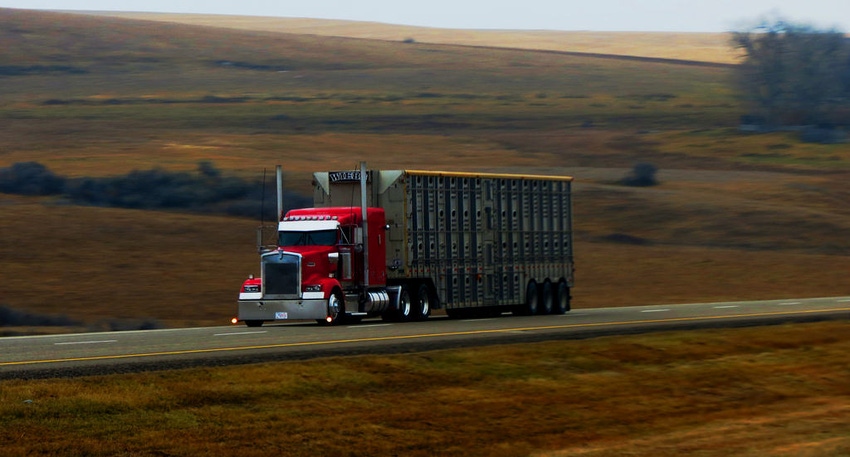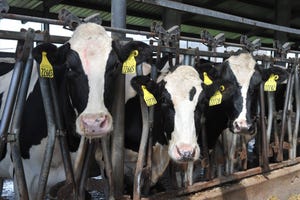Interim rule on ag trucking regulations causes concern
USCA said revised definition of non-processed food could increase inconsistent roadside enforcement.

On Thursday, the U.S. Department of Transportation’s Federal Motor Carrier Safety Administration (FMCSA) published an interim final rule clarifying agricultural commodity and livestock definitions in hours-of-service (HOS) regulations.
The rule would include live chickens, cows and hogs in the definition of agricultural commodity, making live-haul trips exempt from current HOS rules. Frozen product is not included within the definition of an agricultural commodity.
FMCSA began the rule-making process in 2019, releasing a proposed rule for public comment. However, after the COVID-19 national emergency was announced on March 13, 2020, FMCSA provided an Hours of Service National Emergency Declaration on April 8 that expanded the exemption to HOS rules during the emergency. This declaration was extended on May 13, July 13, Aug. 11 and Sept. 11, 2020. The interim final rule would make these changes permanent.
The agricultural exemption provides that HOS regulations do not apply to the transportation of agricultural commodities by truck drivers operating completely within the 150 air-mile radius of the source of origin. Therefore, work and driving hours that occur within that radius are not counted toward a driver’s daily limit of 11 hours or the on-duty limit of 14 hours.
The new definition of agricultural commodity will go into effect 15 days after publication of the interim final rule. FMCSA is providing 30 days for public comments prior to publication.
The U.S. Cattlemen’s Assn. (USCA) said the revised definition of what constitutes a “non-processed” food product, unfortunately, paves the way for inconsistent roadside enforcement for transporters of beef and meat products.
The agency defines “non-processed food” to mean food commodities in a raw or natural state and not subjected to significant post-harvest changes to enhance shelf life. The rule also states that “it is difficult to determine precisely the point at which food commodities are no longer ‘non-processed’” and that “some degree of enforcement discretion must be expected in determining whether the exemption applies.”
USCA Transportation Committee chair Steve Hilker stated, “For several years, USCA has specifically requested FMCSA provide clear, consistent regulatory definitions for transporters of live animals and/or beef. Both are highly perishable commodities, and the lack of clarity surrounding these definitions has held up numerous drivers over the years facing errant roadside enforcement.
“The interim final rule issued actually made current HOS regulations stricter, as it excludes frozen foods from current exemptions. There is no way for a driver to prove that a load they are carrying in a refrigerated truck is NOT frozen without risking rejection of the load by breaking the seal and opening the boxed meat,” Hiker added.
He said the USCA Transportation Committee will meet in the days ahead to review its formal response to this interim final rule. “These definitions and regulatory changes will impact each and every driver hauling boxed beef and trim,” Hiker noted.
Meanwhile, Ethan Lane, vice president of government affairs for the National Cattlemen’s Beef Assn., said the organization is not concerned about the interim rule.
About the Author(s)
You May Also Like





